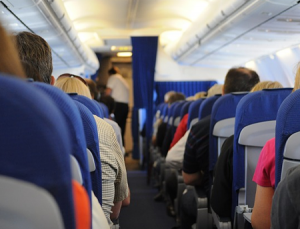As any travel agent or stranded tourist will tell you, planning ahead is the key to a successful trip. And this is particularly true for people with diabetes - a little forethought will take you a long way and help keep you healthy once you are there. Whether you want to hike in the Canadian Rockies or lie in the Florida sunshine, Travel Tips for people with diabetes will help you to make your trip safer and more successful.
PLANNING AHEAD
Diabetes shouldn't stop you from doing the things you want to do. If you want to travel, and you have diabetes, you must plan ahead carefully. There are many disaster stories such as lost luggage or encountering a hurricane. Traveling can be stressful sometimes - and stress can raise blood glucose levels. Although you can't avoid the odd surprise, preparation before you leave can help you avoid undue stress.
Consider telling your travel agent that you have diabetes and explain some of the particular needs that traveling with diabetes entails. That way, a suitable itinerary can be planned to meet your needs. A missed connection or illness can ruin the best-laid holiday plans.
VISIT YOUR DOCTOR OR DIABETES EDUCATOR
Content Continues Below ⤵ ↷
It is a good idea to visit your doctor for a checkup several weeks before you leave. Show your itinerary to your health care team and work out plans for your meals and medication, especially if you are traveling through different time zones. Be sure to get any required vaccinations at least four weeks before you travel so you have time to deal with any possible side effects.
Ask for a list of your medications (including the generic names and their dosages) from your pharmacist-- particularly pills for diabetes, anti-diabetic pills, and insulin. If you take insulin, record the types of insulin and whether the insulin is short, intermediate or long-acting. Photocopy the list and carry one copy with you at all times. Some countries require you to have written documents from your doctor, stating that you are allowed to carry medicines or supplies. Syringes and needles in particular can present a problem when entering some countries.
Ask your doctor or diabetes educator what to do if you get sick on your holiday. Generally, if you experience motion sickness while traveling, take carbohydrate in the form of fluids. If you are not sure how to convert carbohydrate to fluids, ask your diabetes educator. Here are some basic illness management tips: Test your blood glucose levels every two to four hours around the clock. If you have type 1 diabetes, test your urine for ketones every four hours around the clock. If your blood glucose is high and you have ketones in your urine, you will need to take more short-acting insulin. Never stop your insulin or diabetes pills when you are ill, even if you are unable to eat. If your blood glucose levels are low you may need to reduce the dose. Drink lots of fluids as illness can cause dehydration. If you are able to eat, drink one cup of sugar-free fluid per hour (e.g. water or diet pop). If you are unable to eat, drink sugar containing (e.g. regular pop or tea with sugar) as well as sugar-free fluids. Try to drink one cup of fluid per hour. Rest. Seek medical attention if you vomit more than twice.
If you use insulin to manage your diabetes, you should also ask your doctor or diabetes educator about glucagon. Glucagon is an injection that is used to treat severe low blood glucose, a condition that can cause seizures or a loss of consciousness. If you are traveling to a remote spot that does not have ambulance service, it is important that your travel companion learn how to give glucagon. See your doctor or diabetes educator if you are unfamiliar with its use.
IDENTIFICATION
Take identification with you that explains your condition in case you are unable to give instructions yourself. Consider getting a MedicAlert bracelet or necklace that states you have diabetes.
TRAVEL INSURANCE
Some insurance plans do not cover pre-existing medical conditions, which includes diabetes.
PACKING
Divide your medications and diabetes supplies and pack them in more than one place, in case you lose one of your bags. Most importantly, make sure that you have a portion of medications and supplies in your carry-on luggage. Take extra supplies and medication in case of loss, theft or accidental destruction. Also consider some of the other supplies you may need including treatment for hypoglycemia, food supplies, drinking water, walking shoes, sunblock and medication for nausea and diarrhea.
Content Continues Below ⤵ ↷
